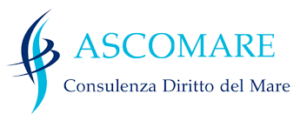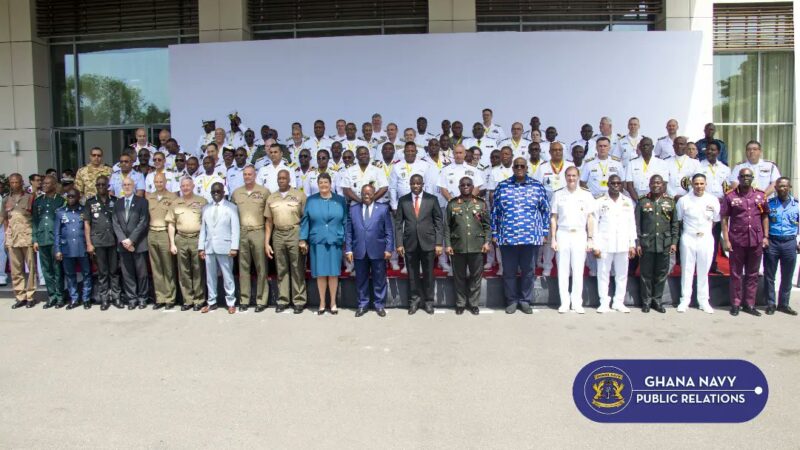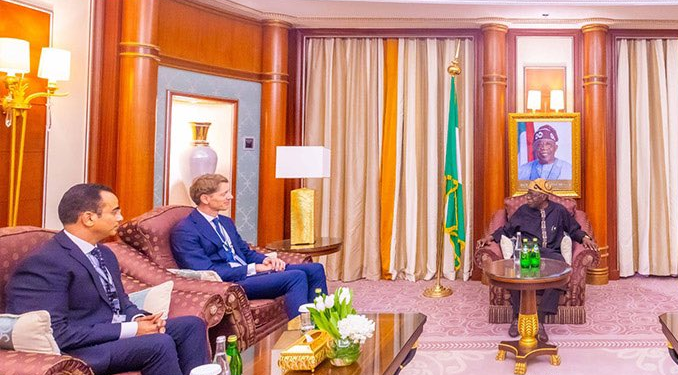Call for Papers – ASCOMARE Yearbook, Volume 3: ‘Maritime Security, New Technology and Ethics: Evolving Challenges and Opportunities’
Background and scope
 The ‘Associazione di Consulenza in Diritto del Mare’ (ASCOMARE) is a law of the sea think-thank established in 2018 to conduct research and provide technical assistance on law of the sea matters to public and private entities. The main goal of ASCOMARE is to promote the study of the law of the sea, and facilitate its uniform interpretation and application across maritime regions and States, in accordance with UN Sustainable Development Goal 14c. ASCOMARE is a founding member of the Consortium for the Study of Maritime Affairs and the Blue Economy (CONSMAR), and since 2021, it serves as Secretariat and depository for the Yearbook on the Law of the Sea (YLoS) publication series.
The ‘Associazione di Consulenza in Diritto del Mare’ (ASCOMARE) is a law of the sea think-thank established in 2018 to conduct research and provide technical assistance on law of the sea matters to public and private entities. The main goal of ASCOMARE is to promote the study of the law of the sea, and facilitate its uniform interpretation and application across maritime regions and States, in accordance with UN Sustainable Development Goal 14c. ASCOMARE is a founding member of the Consortium for the Study of Maritime Affairs and the Blue Economy (CONSMAR), and since 2021, it serves as Secretariat and depository for the Yearbook on the Law of the Sea (YLoS) publication series.
ASCOMARE is pleased to launch its call for abstracts for Volume 3 of the YLoS titled ‘Maritime Security, New Technology and Ethics: Evolving Challenges and Opportunities.’ This volume of the Yearbook will focus on the regulatory, legal, and ethical implications of the use of new technology in maritime security, including the need to ensure intra-generational equity and proportionality (North-South) in the development of new regulatory mechanisms for access and benefit-sharing of resources and technology.
In this volume of the Yearbook, the term ‘maritime security’ will cover not only the traditional security threats laid down in the 2008 UN Secretary General’s annual report on ‘Oceans and the Law of the Sea’, but also those non-traditional security threats undermining the realisation of that ‘legal order for the seas and the oceans’ reflected in the Preamble of UNCLOS , and building on the following thematic areas: (a) international communication, including shipping and digital communication in the maritime domain; (b) peaceful uses of the seas and the oceans; (c) the equitable and rational utilisation of maritime resources; (d) the conservation of marine living resources; and (e) the protection and preservation of the marine environment.
In light of the foregoing, ASCOMARE welcomes submissions on maritime security and new technology, including on the following topics:
• Security threat to maritime critical infrastructures, such as submarine cables and pipelines, including maritime cybersecurity challenges.
• The use of new technology, including artificial intelligence and satellite-based technology, to prevent, deter and eliminate maritime piracy, armed robbery at sea, drug trafficking, maritime transport of weapons of mass destruction, and maritime terrorism.
• Traditional ecurity’s threats, including human trafficking, unsafe and illegal migration at sea, and human exploitative practices (e.g. modern slavery and forced labour) on board vessels and offshore installations.
• Maritime domain awareness and boarders’ management, including the use of drones and other technologies for maritime surveillance, coastal patrolling, search and rescue operations, and information-sharing.
• Sustainable shipping, autonomous vessels, and smart ports.
• Lawful uses of the seas connected with the freedom of navigation in the Exclusive Economic Zone of a coastal State, including activism and the right to protest at sea.
• Technological advancement in land reclamation and artificial islands, as well as the challenges and opportunities of using new technology to mitigate the risk of climate change and sea level rise.
• Sustainable Fisheries, including the use of remote electronic monitoring for control and enforcement purposes, the digitalization of catch-reporting, and the impact of modern fishing practices and technology, such as fishing aggregating devices (FADs).
• Biotechnology, biopiracy, marine bioprospecting, and deep-sea genetic resources.
• Development and transfer of marine technology, environmental impact assessment, ecological protection, including plastic pollution, marine invasive species, and marine pollution control.
• Digital and maritime borders, including the use of new technology in boundary disputes and territorial claims, such as for the outer limits of the continental shelf beyond 200 nautical miles.
The above list is not exhaustive and other subjects in this context, including horizontal matters, may be explored by the authors. Preference will be given to articles focusing on challenges, including ethical ones, and opportunities of the use of new technology in maritime security with an eye to the law of the sea’s implementation and development.
Submission Guidelines and application process
Authors are invited to submit their abstracts using this Form, by 31 July 2023. Submissions must be original and should not have been published previously.
Abstracts
A concise description of the purpose, methods, and implications of your intended paper. This will be used to evaluate and place your work in the appropriate session of the Yearbook:
● The abstract should be no less than 150 words but no more than 300 words.
● Do not include citations in the abstract. Avoid mentioning other works, but if you must, mention so the abstract can be read without the need to consult a reference list. E.g. “Ludwig Wittgenstein’s ‘Philosophical Investigations’.”
● Avoid acronyms, but if you must use them, spell out in full. E.g. “CGRN (Common Ground Research Networks).”
● Only one abstract per author(s) will be considered.
● Submissions in both English and Italian are welcome.
In the application form please include name, affiliation and email address of the author(s).
All submissions will be reviewed by the Editorial Board, formed by members of the ASCOMARE’s legal team and external experts. Please use the link below for applications.
For more information on the application process please feel free to contact Ms Chiara Pavesi at ylos@ascomare.com or send a message to info@ascomare.com
Successful applicants will be informed by 1 September 2023.
Papers overview submission
If your proposal is accepted, you will be requested to submit the full article by 1 November 2023, earlier submissions are encouraged. Articles should be no less than 5,000 words and no longer than 10,000 words, including footnotes. Manuscripts must be prepared according to the “Instructions for Authors” to be found here. ASCOMARE YLoS employs the OSCOLA (4th Edition) system of citation and footnotes. More details are available here. The Editorial Board reserves the right to return manuscripts that are not in accordance with the manuscript format and structure’ instructions.
In line with the goal of ASCOMARE to promote and facilitate a widespread and uniform understanding of the law of the sea in all the regions of the world, the YLoS will be released in a digital open-access version. Open Access allows readers, North and South, to get access to academic knowledge that is normally available behind large paywalls. Authors submitting their applications agree with this publication/open-access policy. Next to the online open-access version, a paper version of the YLoS will also be available for sale.
Awards and prizes
The Editorial Board may recommend one of the selected articles for the ‘Aldo Leucci and Ortensio Degli Atti’ award (3rd ed.). The award will be conferred to the author of the most insightful contribution based on two leading criteria: use of international case-law, and legal reasoning. The winner will be announced in January 2024.
Prizes: the winner of the award will receive a written certificate, a paper version of the ASCOMARE YLoS and Volume III of the “United Nations Convention on the Law of the Sea 1982: A Commentary” (Virginia Commentary).
Call for papers _ ASCOMARE YLoS_ Volume 3
You can read the previous of the Yearbook here: Volume 1 and Volume 2




